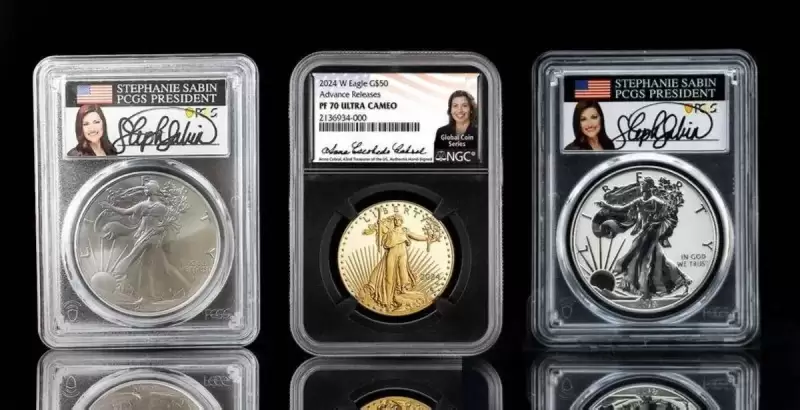 |
|
 |
|
 |
|
 |
|
 |
|
 |
|
 |
|
 |
|
 |
|
 |
|
 |
|
 |
|
 |
|
 |
|
 |
|
When will it be Bitcoin? We reported earlier this year that Iraq no longer wanted to sell its oil in dollars, but rather in yuans.

Iraq, which had expressed its desire to sell its oil in currencies other than the dollar, has been ordered by the American Federal Reserve to cease its transactions in Chinese yuans. According to Mr. Al-Kadhimi, a member of the parliamentary finance committee, the Fed cited “divergences and specific problems related to transactions.”
To put it more transparently, the United States wants to prevent Iraq from trading with its Iranian and Syrian neighbors, two nations under embargo due to their defiance of Israel.
This decision comes after the Iraqi Parliament’s finance committee called on January 31 to sell oil in currencies other than the dollar. The aim was to bypass repetitive American sanctions against Iraqi banks.
“The U.S. Treasury always uses the pretext of money laundering to impose sanctions on Iraqi banks. We need a national agreement to end these arbitrary decisions”, said the statement.
The finance committee reiterated its “call to the government and the Central Bank of Iraq to quickly take measures against dollar dependence by diversifying foreign exchange reserves”.
This is reminiscent of 2001, when Saddam Hussein decided to sell his oil exclusively in euros rather than dollars. Hence, by the way, the French opposition to the second Gulf War. At that time, that is, only two years after Saddam Hussein’s decision, the Americans invaded Iraq under a false pretext to save the petrodollar.
Iraqi oil was again denominated in dollars immediately after the capture of Baghdad. For more than 20 years now, the central bank of the conquered country has been regularly forbidden to use its large dollar reserves.
Iraqi banks must go through the SWIFT network which requires final authorization from the Fed. The latter can block any payment from the Iraqi central bank and does not hesitate to do so.
In short, Iraq is in the same situation as Iran and Russia. Its dollar foreign reserves are partially frozen and its transactions via the SWIFT network depend on Washington’s goodwill.
It is therefore evident that the country of the two rivers would do well to join the BRICS. The deputies favoring such an approach belong to the Shia Coordination Framework. This is an alliance of parties supported by Iran, forming the backbone of the current government. The idea is also gaining traction among other political forces.
Zeinab Al-Mousawi, a member of the parliamentary oil and energy committee, declared at the end of last year that joining the BRICS should be a national priority.
Such integration “could limit the dominance of the U.S. dollar. We could free ourselves from financial and commercial restrictions imposed by Washington”, she said.
Indeed, moving away from the dollar and the SWIFT network is also the priority of the BRICS. The Deputy Speaker of the Duma Alexander Babakov reiterated this again this week. “The priority of the BRICS financial agenda is to create our own financial messaging system similar to SWIFT”, he told the TASS agency.
The Russian Ambassador to China Igor Morgulov said the same thing at the beginning of July. “We are leaving the dollar-dominated space and developing the mechanism and tools for a truly independent financial system”, he asserted.
However, Mr. Morgulov admitted that the introduction of a new common currency was not imminent. However, he stressed that the BRICS – which now include Brazil, Russia, India, China, South Africa, Ethiopia, Iran, and Egypt – “are moving in this direction”.
Russia already has an alternative to the SWIFT network. The Russian SPFS interbank messaging system ensures the secure transfer of financial messages to partner foreign banks. China also has a similar network called CIPS which it uses for international yuan transactions.
Overall, the BRICS are increasingly using their national currencies and seeking to avoid the SWIFT network. The share of payments in national currencies between Russia and BRICS countries has risen to 85%, compared to 26% two years ago.
Last month, Russian Deputy Finance Minister Ivan Chebeskov said that Russia was working on an international payments system in collaboration with the central banks of BRICS member states. The senior official mentioned the term “BRICS Bridge platform”.
This is reminiscent of the “mBridge” project led by China under the aegis of the Bank for International Settlements. Russian Finance Minister Anton Siluanov also clarified that the BRICS “Bridge” will operate with central bank digital currencies, just like mBridge.
On this topic, don’t miss our article: Bitcoin and CBDCs, Russia wants both.
Unfortunately, trading in national currencies has its limits, whether CBDCs are involved or not. For instance, Russia eventually refused to accept rupees as payment because India has nothing to sell that interests the Russian market.
And why not Bitcoin?
The world needs a universally accepted standard currency due to its intrinsic qualities. Gold played this role for a long time before the United States betrayed the entire world by reneging on the Bretton Woods agreements signed at the end of World War II.
Since then, all nations trade in dollars, a gun to
Disclaimer:info@kdj.com
The information provided is not trading advice. kdj.com does not assume any responsibility for any investments made based on the information provided in this article. Cryptocurrencies are highly volatile and it is highly recommended that you invest with caution after thorough research!
If you believe that the content used on this website infringes your copyright, please contact us immediately (info@kdj.com) and we will delete it promptly.




























































